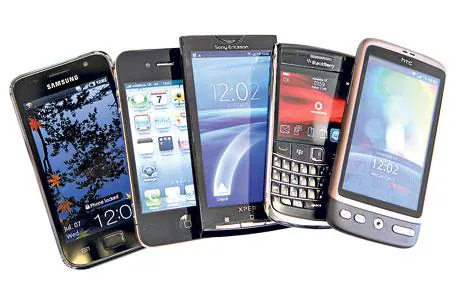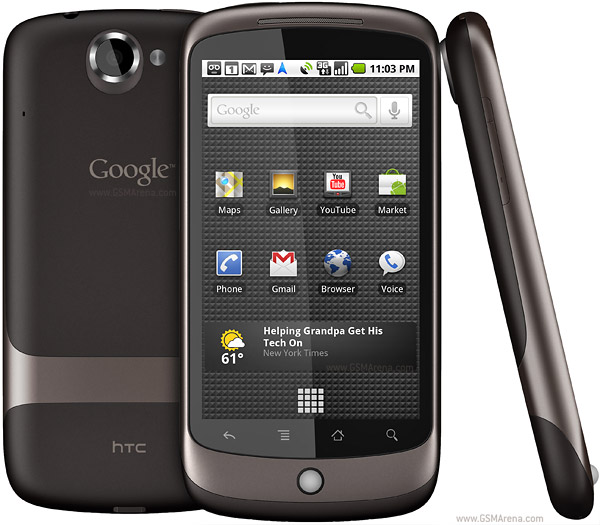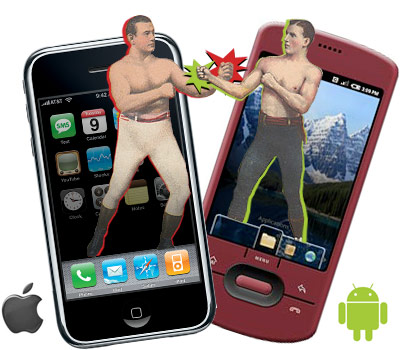Déjà Vu All Over Again
For anyone who’s been around long enough to remember the epic battles for desktop supremacy waged between Apple Computer and Microsoft in the late 1980s and early 1990s, the current situation in the smartphone market has more than a hint of déjà vu. The players have changed -although Apple is at the center of the comparison in both cases- but the battle lines are once again over proprietary hardware and software.
Apple CEO Steve Jobs is fanatical about controlling all aspects of his products and every product the company releases reflects that insistence. Apple has performed spectacularly because of Jobs’ stubbornness, but at one time it also came perilously close to sinking the ship. Could history repeat?
Battle For the Desktop
Flash back to 1984, when Apple released its “computer for the rest of us,” the Macintosh. Apple started strong and many felt the company was in a position to dominate the desktop computing world with the user-friendly Mac, but Steve Jobs was adamant that his computer run only the Mac OS and refused to license Apple’s operating system to other computer manufacturers. Bill Gates and Microsoft kept hammering at Apple with continually improving versions of Microsoft’s Windows, an OS which would run on any Intel-based personal computer.
IBM’s OS/2 was the alternative operating system for the PC’s that the business world favored, not the Mac OS. In retrospect it all happened so fast: Apple Computer lost its momentum, Windows became “good enough” to be a viable competitor, Jobs bailed from the company he’d cofounded, Apple tried to sue Microsoft over claims that Windows infringed on elements of the Mac OS and by 1990, Apple’s share of the desktop was down to 15%. It wasn’t long before that dropped to single digits and the company’s survival was openly in question by the time Windows 95 shipped in 1995.
The Smartphone is the New Desktop
Although it didn’t invent the paradigm (and was actually a latecomer to the smartphone party), when Apple unveiled the iPhone, users flocked to the device. Drawn by its stylish looks, a UI that was radically easier for users to interact with and a new mult-touch input method, consumers were sold on the iPhone despite its steep price tag; they literally lined up to buy one.
Application developers followed, and the App Store has a been a resounding success, with over 100,000 Apps currently available for download. With over 25% of US market share for smartphone platforms, Apple has quickly risen to be the number two manufacturer of these devices and is a contender for first place when it comes to consumer market share.
RIM’s BlackBerry remains the dominant player with roughly 40% of the market, but the BlackBerry’s strength is in the corporate market where RIM’s devices have been embraced while the iPhone is still regarded with some suspicion. Windows Mobile holds roughly 18% of the market, followed by a diminishing Palm at 6% and the newest competitor, Google’s Android at 5%.
Proprietary or Open?
RIM and Apple have chosen the path of tying their operating systems to their own hardware. Going the route of having a proprietary system with no licensees and no supported method for either running BlackBerry or iPhone OS on a competing device, (or running a competing OS on a BlackBerry or iPhone), means these two companies retain complete control of their user experience.
With a closed platform, product releases tend to be smoother, fewer bugs make it into the wild and Apple customers have accepted this trade-off, at least for the time being. From Apple’s perspective, the company fought this battle over the past decade with the iPod, its proprietary answer to the MP3 player, proving that it could indeed win by controlling all aspects of a product. The iPod now owns nearly 74% of the MP3 player market, a dominance that has remained despite competitive offerings from range of manufacturers, including SanDisk and Microsoft. However, web browsing and game playing capabilities of the iPod Touch aside, the MP3 player market is not where the future of mobile computing lies.
Bring On the Lawyers
Steve Jobs has to be a little worried at the moment and the fact that Apple’s lawyers have been unleashed on smartphone manufacturer HTC (one of the most prominent makers of Android smartphones) to file a suit over infringement on the iPhone’s multi-touch UI illustrate just how concerned the company is about history repeating. This move sounds a lot like Apple Computer vs. Microsoft, filed in 1988.
Here’s the thing. For the past several years, Apple and its iPhone have had a very good run. The iPhone has become a smashing success and contributes greatly to Apple’s bottom line. The success of the App store has just been gravy and has vindicated Jobs’ adamant position that a proprietary system can be a superior one, but the App store has also been a double-edged sword. It showed that there’s a huge market out there for smartphone applications and it drew attention to the fact that these applications were available only for the iPhone.
Smartphone ownership is on a steady upward trend. According to ChangeWave Research, it’s increased from 15% of respondents in 2006 to 42% of respondents last December. Just as the smartphone is well on its way to becoming the mobile equivalent of the computer desktop, an alternative platform is beginning to make waves; one that’s highly customizable, backed by an industry giant and running on a growing number of smartphones.
It’s even offering its own version of an App Store, and the UI has incorporated variations on the multi-swipe gestures used by the iPhone OS. As an open system, Google’s Android running on a smartphone manufactured by HTC or Motorola may not be quite so polished as Apple’s closed system, but for people who don’t like to be locked in (or locked out), the appeal is there.
Throw a resurgent Microsoft into the works, making noise with their first Windows Phone 7 smartphone about to be released, and the iPhone’s position seems to be considerably less solid.
History Repeating?
So, is 2010 going to be a repeat of the 80s, when Apple let desktop dominance slip from its grasp, holding on to become a distant second place player whose premium hardware and appeal to creative types barely kept it from being assimilated into obscurity? Or, can the decade long dominance of the iPod be replicated in the smartphone market?
My gut feeling on this one is that we’re going to see a different outcome than either of the two scenarios. My guess is that Apple’s iPhone and RIM’s BlackBerry will remain the market leaders for the foreseeable future, but will have to make room for Android, with RIM being the big loser. Palm will be toast. BlackBerry will continue to lead in the corporate world, but continue to lose ground in the consumer space.
The iPhone will make marginal inroads into the corporate space and more or less retain its place in consumers’ hearts. I see Windows Phone remaining relevant largely because of corporate IT shops that prefer a mobile device that’s tightly integrated with their Microsoft ecosphere. Android will have some fans in the corporate world, but is considered too open for most IT shops to embrace; however, it will continue to make gains in the consumer space.
A Dominant Player, But Not the Only One
When the dust settles in three or four years, rather than having the equivalent of a Microsoft desktop hegemony, or an Apple clamp on the mobile desktop, I see three dominant players, with Microsoft also hanging on. Call the overall smartphone market share something like this: iPhone (and iPad) 40%, BlackBerry 30%, Android 20%, Windows 10%.
While it won’t take over the world, I don’t think Apple faces the same decline it did in the desktop, but by suing HTC (and thus sending a warning shot across the bow of any smartphone manufacturer intending to produce Android phones), Apple obviously isn’t taking any chances this time.




Apple lose the OS wars? Again? Are you crazy, uninformed or just an Apple hater? How can they have lost when it is generally acknowledged, even by Microsoft that the Apple OS is far superior? S0 much so that Microsoft has admitted “taking a close look” at OSX when designing Windows 7.
That’s not even considering the blatant plagiarism Windows has made of Apple from the first version. From the start, Apple has been the leader in innovation, quality, and attention to detail. Those are advantages that no one else has matched to this day. Perhaps that is why apple is one of the most successful companies in the world, valued at more than Microsoft, and is the largest individual manufacturer of computers in the world? Yep, they lost. We should all be so lucky as to lose like this.
Interesting to read an article 8 months old and yet what seems like ancient history.
Yep, Apple lost the phone OS war. I’ll predict it. Nothing can stop Android. The market share percentages in this article are laugable, now we know what happened and how fast Android exploded.